-
 Riyadh's King Fahd stadium to host 2027 Asian Cup final
Riyadh's King Fahd stadium to host 2027 Asian Cup final
-
'Superman Sanju' toast of India after T20 World Cup heroics

-
 Travel chaos, but F1 season-opener in Australia 'ready to go'
Travel chaos, but F1 season-opener in Australia 'ready to go'
-
Lunar New Year heartache for Chinese team at Women's Asian Cup

-
 El Nino may return in 2026 and make planet even hotter
El Nino may return in 2026 and make planet even hotter
-
Somaliland's Israel deal could put Berbera port at risk

-
 Texas primaries launch midterm battle with Trump agenda at stake
Texas primaries launch midterm battle with Trump agenda at stake
-
How a Syrian refugee chef met Britain's King Charles

-
 Bangladesh tackle gender barriers to reach Women's Asian Cup
Bangladesh tackle gender barriers to reach Women's Asian Cup
-
Iran war spreads across region as Israel strikes Hezbollah

-
 Argentina's Milei says wants US 'strategic alliance' to be state policy
Argentina's Milei says wants US 'strategic alliance' to be state policy
-
'Sinners' wins top prize at Screen Actors Guild awards

-
 New rules, same old suspects as F1 revs up for 2026 season
New rules, same old suspects as F1 revs up for 2026 season
-
World Cup tickets: Huge demand and sky-high prices

-
 List of key Actor Award winners
List of key Actor Award winners
-
Trump hunkers down after Iran strikes

-
 China's leaders gather for key strategy session as challenges grow
China's leaders gather for key strategy session as challenges grow
-
UK toughens asylum rules to discourage migration

-
 Israel hits Lebanon after Hezbollah fire, expanding Iran war
Israel hits Lebanon after Hezbollah fire, expanding Iran war
-
CBS in turmoil as US media feels pressure under Trump

-
 Messi bags double as Miami battle back to down Orlando
Messi bags double as Miami battle back to down Orlando
-
Greenland is 'open for business' -- kind of, says business leader

-
 Canada's Carney to mend rift, boost trade as he meets India's Modi
Canada's Carney to mend rift, boost trade as he meets India's Modi
-
Crude soars, stocks drop after US strikes on Iran

-
 Iran war spreads across region as US, Israel suffer losses
Iran war spreads across region as US, Israel suffer losses
-
Miriam Margolyes tackles aging in Oscar-nominated short

-
 Recognition, not competition, for Oscar-nominated foreign filmmakers
Recognition, not competition, for Oscar-nominated foreign filmmakers
-
Israel, Hezbollah trade fire: latest developments in Iran war

-
 Israel strikes Tehran: latest developments in Iran war
Israel strikes Tehran: latest developments in Iran war
-
Trump vows to avenge first US deaths as Iran war intensifies

-
 Lowry collapses late again, Echavarria snatches victory in Cognizant Classic
Lowry collapses late again, Echavarria snatches victory in Cognizant Classic
-
Aubameyang strikes twice as Marseille edge Lyon in Ligue 1

-
 Infantino says players who cover mouths when speaking could be sent off
Infantino says players who cover mouths when speaking could be sent off
-
Bolsonaro son rallies the right as thousands protest Brazil government

-
 Juve stay in Champions League hunt with last-gasp Roma draw
Juve stay in Champions League hunt with last-gasp Roma draw
-
Maersk suspends vessel transit through Strait of Hormuz

-
 France, Germany, UK ready to take 'defensive action' against Iran
France, Germany, UK ready to take 'defensive action' against Iran
-
Trump vows to avenge deaths of US troops: latest Iran developments
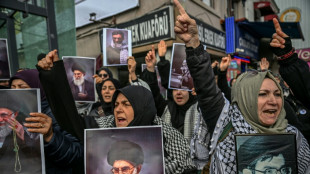
-
 Knicks halt Spurs' 11-game NBA winning streak
Knicks halt Spurs' 11-game NBA winning streak
-
EU warns against long war, urges 'credible transition' in Iran

-
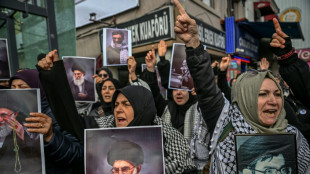 'Severe blow' dealt to Iran command centres: latest developments
'Severe blow' dealt to Iran command centres: latest developments
-
Bored of peace? Trump keeps choosing war

-
 Arteta embraces Arsenal's 'Set-Piece FC' label after corners sink Chelsea
Arteta embraces Arsenal's 'Set-Piece FC' label after corners sink Chelsea
-
Sevilla rescue derby draw to deal Betis top four setback

-
 India need 'special effort' to beat England in semi-final: Gambhir
India need 'special effort' to beat England in semi-final: Gambhir
-
'A terrible day,' says Israel community shaken by deadly Iranian strike
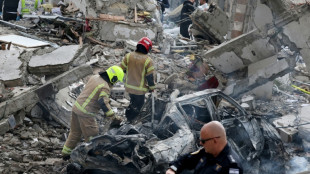
-
 Arsenal corner Chelsea into submission, Man Utd climb to third
Arsenal corner Chelsea into submission, Man Utd climb to third
-
Arsenal win set-piece battle to sink Chelsea in title boost
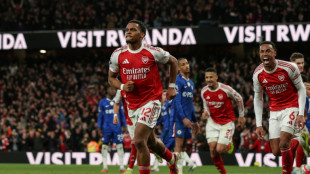
-
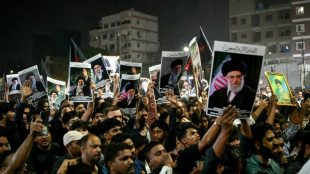 What future for Iranian leadership after Khamenei's death?
What future for Iranian leadership after Khamenei's death?
-
'Scream 7' makes a killing at N. America box office
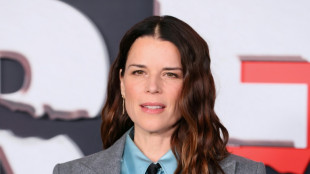
Bolivia at breaking point
In recent months, Bolivia has lurched from crisis to crisis. Long queues at gas stations, sporadic road blockades, and clashes between rival political camps have fed fears of a broader internal conflict. A year after a failed military putsch shook La Paz, the country now faces a decisive political transition against the backdrop of a rapidly deteriorating economy. As of August 18, 2025, preliminary results point to an October 19 runoff that ends two decades of dominance by the ruling movement—an inflection point that could steer the country toward stabilization or push it closer to a dangerous spiral.
A political rupture with violent undertones
Bolivia’s governing bloc fractured into warring factions after the split between President Luis Arce and his onetime mentor, former president Evo Morales. That rift spilled into the streets this year: blockades, counter-mobilizations, and deadly confrontations were recorded in mining towns and highland corridors, with church leaders warning of a “spiral of violence.” Those tensions sit atop the still-raw memory of June 26, 2024, when armored vehicles briefly surrounded the presidential palace before the putsch collapsed and commanders were arrested.
The economic picture is grim. In January, a major rating agency cut Bolivia to CCC-, citing vanishing foreign-exchange buffers and looming external payments; by its estimate, the country faced around $110 million in Eurobond coupons this year with only about $47 million in liquid reserves at one point. Fuel imports—long subsidized—have repeatedly faltered, triggering national transport strikes, border disruptions, and days-long lines for gasoline and diesel. Inflation, once among South America’s lowest, surged to multi-decade highs through mid-2025.
A chronic dollar shortage has fractured the currency regime: while the official rate stayed near 6.96 bolivianos per dollar, a thriving parallel market developed. By late July the street rate hovered around 14 BOB per USD—stronger than its worst levels earlier in the year, but still far from the peg—underscoring lost confidence. As households and small firms struggled to access currency, some turned to crypto and informal finance as workarounds.
Gold and gas: lifelines with limits
To scrape together hard currency, authorities leaned on the country’s booming (and often opaque) gold trade, monetizing bullion to raise billions in fresh dollars—an emergency bridge, not a structural fix. Meanwhile, the gas engine that powered Bolivia for two decades has sputtered. Exports to Argentina ended in 2024 as output slumped, and in a symbolic reversal this year, Argentina began shipping Vaca Muerta gas through Bolivia toward Brazil using Bolivian pipelines—signaling how far the regional energy balance has shifted.
Why fears of wider conflict are not far-fetched
No single spark guarantees a slide into civil war, but several risk factors now overlap: factionalized parties with loyal street bases, pockets of armed actors and hardliners, a legitimacy fight around barred candidacies and court rulings, and an economy that can no longer cushion shocks with cheap fuel or a steady dollar supply. Independent monitors have recorded lethal violence tied to the intra-left feud, while civic leaders in blockaded towns report confrontations between residents, protesters, and security forces. Each new blockade erodes livelihoods, deepens scarcity, and shortens tempers—a classic recipe for escalation.
The runway to October—and what comes after
The first-round result has upended Bolivia’s political map: two opposition figures advanced and the ruling movement’s candidate finished far behind, all amid the worst macro stress in a generation. Whoever wins in October will inherit unpopular choices: rationalizing fuel subsidies, rebuilding reserves, restoring a functional FX market, and reviving the gas sector while speeding up transparent lithium and gold governance. Failure risks further shortages, more street battles over scarcity, and a dangerous normalization of political violence. Success demands a credible stabilization plan, broad buy-in from unions and regional elites, and early signals—like targeted cash transfers and a clear, time-bound subsidy path—to keep social peace while reforms bite.

Fled the Russian terror of the war criminal Putin: France welcomes Ukraine's refugee children

'This Russia is totalitarian, it's nationalistic, it's imperial', warns Poland's PM

France: Emmanuel Macron (44) inaugurated as president for the second time

Russia and the perverted propaganda show for the "Victory Day" of Putin's Russian terror regime

'Water is light, light is art': Italian town illuminated by the inspiration of water

'People like Europe, they have a European dream', says MEP Guy Verhofstadt

US Supreme Court moving to overturn key abortion rights law, says leaked report

Albania and North Macedonia joining EU 'not a threat', says Italian PM
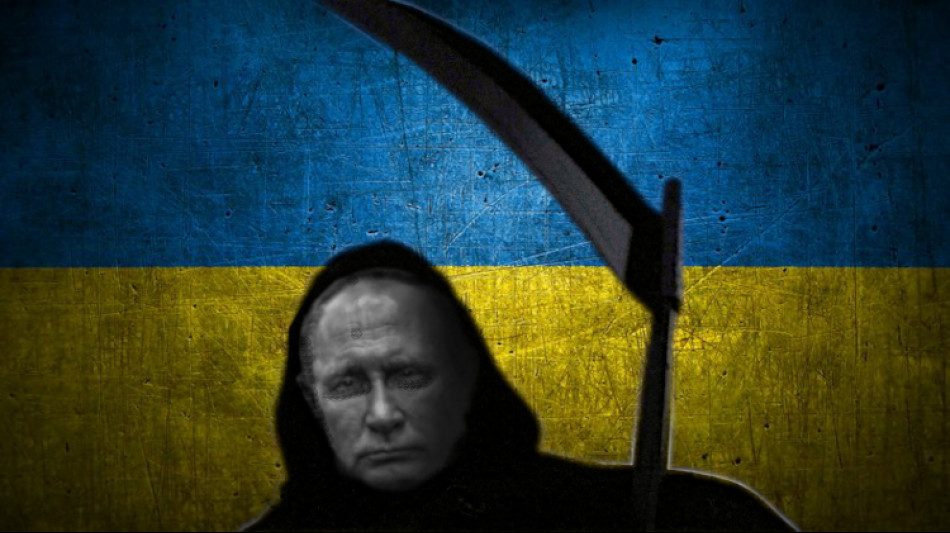
Бегство от российских террористов из Мариуполя: Украина надеется на продолжение операции по спасению гражданского населения

Escape from russian terror Beasts from Mariupol: Ukraine hopes for continuation of civilian rescue operation

Stop Russian terror war: US, France continue to pledge military support and aid for Ukraine




